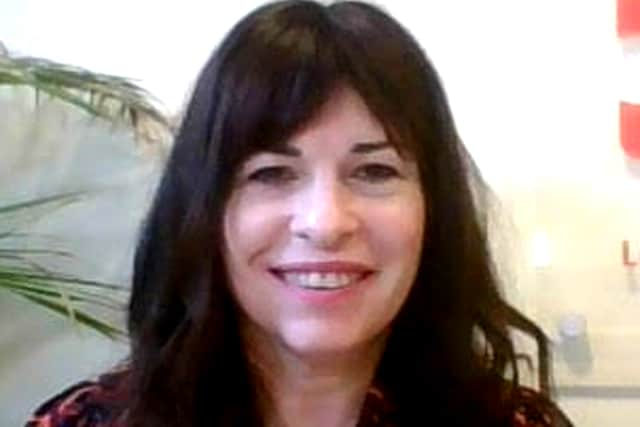14 ways our workplaces are changing - from hush trips to summer hours and time off for reaching goals
and live on Freeview channel 276
The modern worker no longer necessarily performs their duties from an office location, being overseen by a manager, and at certain times every day. Some people now work from home or in other remote locations alone, and at varying times.
People’s attitudes to work has also changed - largely fuelled by enforced changes during the Covid-19 pandemic which saw workers having to adapt their working environments and duties overnight in response to the global health crisis. The pandemic may now be over, but its impact on the culture of work continues to be felt.
Advertisement
Hide AdAdvertisement
Hide AdExpert in workplace wellbeing, Sadie Restorick told NationalWorld: “Undoubtedly, the modern workplace continues to undergo a time of great transition, characterised by a profound shift towards greater trust, autonomy, and flexibility, whilst also maintaining levels of productivity and engagement.” The ease of connectivity between employers and employees in the modern age, but also between different employees, also means that people feel more empowered to find a workplace that suits their needs.
Restorick says: “The future of the workplace will likely see a continued emphasis on a more employee-centric approach, driven by the recognition of the importance of balance, well-being, autonomy, and flexibility. Employers must prioritise transparent communication, development opportunities, and a positive work culture where issues can be raised in a psychologically safe environment. Cultivating such a positive experience will not only help retain and secure staff [but also] attract top talent.”
So, NationalWorld has spoken to a number of employment experts to discover exactly what ways our working environments have changed, and will continue to change in the near future. Keep reading to find out about all 14.


Hush trips
Hush trips have been made possible thanks to the rise of remote working. This is where a person will go away, but not tell their manager they are not in their usual workplace, and work from a new location - usually a holiday location. People have been doing this to allow them to get the joy of being away from home, but without having to take annual leave.
Advertisement
Hide AdAdvertisement
Hide AdJessica Flinn-Allen, CEO and founder of Jessica Flinn, wedding and engagement ring specialists, told NationalWorld that she doesn’t mind if her staff work in a different place to usual but she does ask that they let her know. She says: “There’s absolutely no need to crack down on this, but to make it work, employers should look to support employees who want to do this. Trust is one of the key factors to making this work, if you trust in them to complete their work then they will be grateful for the flexibility and will meet that level of trust.”
Restorick says that the concept of hush trips “raises concerns about accountability and potential misuse of flexible work arrangements”. She also says that being open is vital. “Employers must strike a balance by establishing clear communication channels, setting expectations, and cultivating a culture of trust, where employees feel empowered to request and utilise flexible work options responsibly.”


Corinne Mills, Career Coach and Managing Director of Personal Career Management, told NationalWorld that employees would also have to ensure that there are no security concerns by working in an unfamiliar location, a public location or on a public WiFi network, for example. She says: “As long as you’re staying connected then there’s no problem with you working from wherever, but an employer will want to know that you are working and contactable. If you are on the beach, for example, they’ll want to know you’re not napping for the afternoon. You also need to use your professional judgement and not have confidential meetings in a public bar, but equally you shouldn’t be doing that from the coffee shop down the road from your house either.”
Mills also warned people against taking a holiday without booking annual leave and instead pretending they are working to try and get away with it. She said: “If you’re trying to wing it, you’re going to get found out. Once trust is broken you’re not going to get that back, so you’d be playing a dangerous game. That also then raises a disciplinary issue, if you’re supposed to be working and you’re not.”
Summer hours
Advertisement
Hide AdAdvertisement
Hide AdSummer hours are exactly what they sound like - a change in working hours during the summer season. This can look different at different companies, for some it means cutting down on work hours and finishing work an hour or two earlier than usual, while for others it may simply mean adapting working patterns so that the start time is earlier in the morning to also allow for an earlier finish time. In some businesses, people may even be offered the opportunity to work a half day at certain times during the summer months, usually on a Friday so that people can have a long weekend.
Flinn-Allen says that if her staff want to start and finish work earlier in the summer she is happy to accommodate this, as long as the request is communicated. “It’s important to keep an open line of communication so that everyone knows what each other are up to, rather than it being a shameful thing”, she says.


Emma Last, founder of Progressive Minds, a company which seeks to improve overall health, wellbeing and performance in workplaces, told NationalWorld that the concept of summer hours may work well for businesses where there are peaks and troughs. She says: “Giving employees the flexibility to work shorter days in the summer gives employees the ability to gain more of a life balance whilst it’s quieter, and could help to support parents with summer holiday cover also. This can, therefore, work really well as long as all employees are willing to give back to the business when it needs it in peak times.”
Time off for reaching goals
In some companies, staff members are given time off due to completing their targets or receiving a positive social media review. Last says that it’s important for employers to understand their employees before deciding what incentive to give them for doing well at work, however, and that time off may not be best for everyone. She says: “For some employees being allowed to take a couple of hours off can feel like a huge reward, whereas for others taking a couple of hours off can cause them more stress as they feel like they need to fit their work into less time. Some may prefer a small treat, for example, a voucher to make their financial situation easier.”
Advertisement
Hide AdAdvertisement
Hide AdMills believes this trend is a big indicator of how much workplaces have changed in recent years as traditionally people were paid for the amount of hours that they worked, but now there’s been a move towards focus on performance and output measures, rather than actual hours worked. She said: “If you get the job done and you go and take a couple of hours off then that’s fine. It’s not about sitting there from 9am till 5.30pm with your half hour lunch break anymore.”
She did, however, raise questions about the impact on the company by doing this. She said: “From a psychological perspective, it’s a bit counterintuitive in some respects if you are telling people that their reward is not having to come in to work as it’s almost as though work is a punishment. From a business perspective, I’m also not entirely sure it makes sense to let your most successful employees have time away from the business. It’s a complex topic.”


Resenteeism
Resenteeism happens when a person stays in a job they're unhappy with due to job stability concerns or a fear that there are no better employment options, but they make their resentment and unhappiness clear. This trend is being fuelled by the cost of living crisis as people are now uneasy about leaving a permanent and secure job, even if it is not what they want or it is causing them misery, due to worries they would be causing themselves financial hardship by doing so.
Last says that resenteeism can lead to a catch-22-type situation. She says: “When we feel trapped, lacking in options and hope, it can lead to mental health problems and we can become ill. It becomes a vicious circle - we’re unhappy and become more and more resentful but we can’t leave due to the money and potential impact on our home life but the consequences on our health can be huge.”


Advertisement
Hide AdAdvertisement
Hide AdMills also warns that people could be leaving themselves vulnerable to being sacked if they continue to behave in a negative manner at work. She added: “Sometimes, it is about your approach to work, and there’s a lot you can get out of work - you can take pride in your work, do a good job, enjoy spending time with colleagues, for example. But if you really feel that the job is wrong for you then you should just move jobs.”
Presenteeism
Presenteeism happens when someone still goes to work when they are not very well, and at times this leads them to not be as productive as usual. This is not a new trend, and it has always been common for people to continue to attend work even when they have minor illnesses. For some, this is because they are not given sick pay if they do not go to work, and for others it is simply they do not believe their illness is severe enough to warrant taking time off and so instead they persevere with working. People also think it is better to present at work than not go at all, even if they are unwell and would be awarded sick pay, because there is still a widespread belief that this is how you show yourself to be a “good” employee.
The attitude to work has become more common, however, in the age of home working as people tell themselves that they can manage with their working routine if they are in the comfort of their home and do not have to commute to the office, for example. In addition, people do not have to worry about presenting themselves in the most professional way, as they would need to do in an office setting, and so if they need to wear comfy clothes or have health remedies such as a hot water bottle then that is okay.
Absenteeism
Absenteeism is when a person is continually absent from work. Sometimes, this is unplanned, for example due to illness or childcare issues, but it can also be planned, such as during strike action. The difference between absenteeism and being absent is the regularity. Someone who is demonstrating absenteeism will frequently fail to attend work.
Dog-friendly offices
Advertisement
Hide AdAdvertisement
Hide AdNot everyone is working from home, or in other remote locations, and some people are still working in an office environment. Those who are working in an office may, however, find that their days are a bit lonelier than they once were as many of their colleagues are at home. To try to combat this loneliness, some offices have allowed people to bring their pets with them into the office to keep them company.
One person who is used to taking his dog to work with him is Lawrie Chandler, director of financial adviser business, Edale. The company has an office in Surrey and a co-working space in London, and both allow people to take their four-legged friends in to work with them. Lawrie, who enjoys working in the office with his dog, 10-month-old Bernese Mountain dog Artos, told NationalWorld: “With so many people now working from home it was good to have some company in the office, it means we can have an unconditional friend and also a reason to take a fresh air break.”


Return to offices
Three years on from the start of the Covid-19 pandemic, which forced many people to become home-workers overnight, people are now wanting to return to the office, according to Mills. “Face-to-face working is coming back. People are missing the energy from the office and want to get people together again. I think this is a growing trend. We are social animals and we derive so much from being with other people.”
Bare minimum Mondays
The concept of bare minimum Mondays is exactly what it sounds like - people are admitting to doing as little as possible during their working day on a Monday to help ease themselves into the working week. This trend has been highlighted by social media site TikTok and videos related to the topic now have over 568 million views on TikTok - and the view count is continuing to grow. The incentive for taking part for workers is to avoid stress and improve their wellbeing.
Advertisement
Hide AdAdvertisement
Hide AdGeraldine Joaquim, clinical hypnotherapist and wellness coach, told NationalWorld that the trend needn’t be problematic, as long as people are still being productive and completing all the tasks they need to do during the week overall. She adds: “It's certainly true that creativity isn’t restricted to certain days or times of the week, so enabling employees to enjoy a more free-flow approach may result in improved productivity and creativity.”
There could also be issues with the trend, however as social scientist and productivity expert Juliet Landau-Pope told NationalWorld that if you are paid on an hourly basis or employed on a short-term contract, then bare minimum Monday isn’t likely to be affordable nor feasible. “If you’re part of a team it may be difficult to explain to colleagues or clients that you’re not fully available. And if you’re self-employed or working as a freelancer, you’re likely to miss out on important opportunities.”


Quiet quitting
Quiet quitting occurs when a worker does what they are required to do in their role, but they do not do anymore than that or go above and beyond. Joaquim says this is “another example of the stress that people have been under for such a long time” in the workplace. Again, the trend may be made easier for people who work remotely because employers can not see what their team members are doing in the same way as if they are sitting beside them.
QuitTok
In the social media age, some young people are filming themselves while they quit their job and then posting the video on social platforms - particularly TikTok, hence the name of the trend being QuitTok. The practice has become so popular, in fact, that it’s led to the hashtag #QuitTok which has gained over 46 million views at the time of writing - and that number is continuing to grow.
Advertisement
Hide AdAdvertisement
Hide AdMills called the trend interesting and said she wondered if people were looking for validation for their actions by taking part, but warned against taking part in it. “If you’ve been really badly treated by an employer you can think I’m taking a bit of power back, I’m going to have my revenge and tell the world how awful they have been. I understand the impulse, but it will not reflect well on you. She added: “There’s a real boundary issue around this that young people need to be really conscious of because it might come back and bite them. If you want future employers to trust you then you are playing a really risky game.”
Joaquim said, however, that there could be positive implications of the trend, if it helps to hold employers accountable for how they treat their staff and also create better working environments. She added that younger generations seem more at ease with moving on from jobs than their older peers, and for them quitting a job is simply part of the process. She says: “They want a more balanced approach to their work-life experience, which prioritises positive mental health. To this end, the #QuitTok may be helping towards creating more transparency in the corporate world, alongside platforms such as Glassdoor where employees can review their workplaces.”


Mental health days
Flinn-Allen offers her employees mental health days during the year, which are separate from annual leave days or sick days, to support their wellbeing. These days can be booked at one day per quarter at full pay. Flinn-Allen explains why she implemented this policy: “The purpose of our mental health day benefit is to allow our employees to take a day out to do something they enjoy and that will benefit your mental health. For example you could go for a spa day, a long leafy walk, or just chill in front of the telly. The aim is to keep employees happy and healthy and help to avoid burnout.”
Four-day working week or a shorter working week
The traditional full-time working week for many is at least 37.5 hours, usually spread across five days. But, some employers are pulling away from this business model. Katie Manasse, who runs a fully remote arts consultancy called Polyphony Arts, operates on a 30 hour week and allows her staff to do the same. She told NationalWorld that she allows her staff to be flexible and work their 30 hours when they choose. She says: “I think that six hours per day is the maximum that is reasonable to require someone to work in a home office, where there are not necessarily the natural distractions that there are in an office. What I mean by this is that in an office there is an understanding that some of the 7.5 hours you typically spend working is spent chatting, making tea and having work or non-work connections with colleagues. When at home or remote, that environment is not necessarily there.”
Advertisement
Hide AdAdvertisement
Hide AdTo make this approach effective, however, she does ask that her staff members work at least 50% of their hours between 8am and 6pm Monday to Friday, and that when they have chosen their working pattern they broadly stick to it. This ensures that she, other staff members, and clients can know what to expect from individuals.


Other companies may be sticking to the typical number of working hours, but they are compressing them over a shorter time period, allowing staff to have a four-day working week and a three-day weekend. One company which adopted the four-day working week model long before the introduction of the trial is London-based Reflect Digital. CEO Becky Simms decided to offer her staff either a Monday or a Friday off work in 2018. She told NationalWorld: “The team’s happiness was instantaneous, that bank holiday feeling every week is amazing, I love getting to enjoy it as well. The impact on staff wellbeing has also been fantastic, it gives everyone so much more time each week to spend with friends, family, or doing a hobby. It means when they come back to work, they feel fully refreshed from having had three days off.”


Boomerang employment
Boomerang employment is when individuals return to work for organisations they previously left. This trend is demonstrative of the desire for employers who genuinely respect balance and boundaries and place an emphasis on physical, mental, and emotional health, says Restorick. She adds: “By embracing this trend, organisations can tap into a pool of familiar talent, fostering loyalty, and benefiting from the unique insights and experience these individuals bring.”
Comment Guidelines
National World encourages reader discussion on our stories. User feedback, insights and back-and-forth exchanges add a rich layer of context to reporting. Please review our Community Guidelines before commenting.
